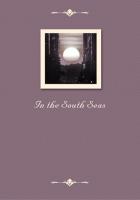We have the FATALIST economists, who in their theory are as indifferent to what they call the drawbacks of bourgeois production as the bourgeois themselves are in practice to the sufferings of the proletarians who help them to acquire wealth. In this fatalist school, there are Classics and Romantics. The Classics, like Adam Smith and Ricardo, represent a bourgeoisie which, while still struggling with the relics of feudal society, works only to purge economic relations of feudal taints, to increase the productive forces and to give a new upsurge to industry and commerce. The proletariat that takes part in this struggle and is absorbed in this feverish labor experiences only passing, accidental sufferings, and itself regards them as such. Economists like Adam Smith and Ricardo, who are the historians of this epoch, have no other mission than that of showing how wealth is acquired in bourgeois production relations, of formulating these relations into categories, into laws, and of showing how superior these laws, these categories, are for the production of wealth to the laws and categories of feudal society. Poverty is in their eyes merely the pang which accompanies every childbirth, in nature as in industry.
The ROMANTICS belong to our own age, in which the bourgeoisie is in direct apposition to the proletariat; in which poverty is engendered in as great abundance as wealth. The economists now pose as blase fatalists, who, from their elevated position, cast a proudly disdainful glance at the human machines who manufacture wealth. They copy all the developments given by their predecessors, and the indifference which in the latter was merely naivete becomes in them coquetry.
Next comes the HUMANITARIAN school, which sympathizes with the bad side of present-day production relations. It seeks, by way of easing its conscience, to palliate even if slightly the real contrasts; it sincerely deplores the distress of the proletariat, the unbridled competition of the bourgeois among themselves; it counsels the workers to be sober, to work hard and to have few children; it advises the bourgeois to put a reasoned ardor into production. The whole theory of this school rests on interminable distinctions between theory and practice, between principles and results, between ideas and application, between form and content, between essence and reality, between right and fact, between the good side and the bad side.
The PHILANTHROPIC school is the humanitarian school carried to perfection. It denies the necessity of antagonism; it wants to turn all men into bourgeois; it wants to realize theory in so far as it is distinguished from practice and contains no antagonisM. It goes without saying that, in theory, it is easy to make an abstraction of the contradictions that are met with at every moment in actual reality. This theory would therefore become idealized reality. The philanthropists, then, want to retain the categories which express bourgeois relations, without the antagonism which constitutes them and is inseparable from theM. They think they are seriously fighting bourgeois practice, and they are more bourgeois than the others.
Just as the economists are the scientific representatives of the bourgeois class, so the Socialists and Communists are the theoreticians of the proletarian class. So long as the proletariat is not yet sufficiently developed to constitute itself as a class, and consequently so long as the struggle itself of the proletariat with the bourgeoisie has not yet assumed a political character, and the productive forces are not yet sufficiently developed in the bosom of the bourgeoisie itself to enable us to catch a glimpse of the material conditions necessary for the emancipation of the proletariat and for the formation of a new society, these theoreticians are merely utopians who, to meet the wants of the oppressed classes, improvise systems and go in search of a regenerating science. But in the measure that history moves forward, and with it the struggle of the proletariat assumes clearer outlines, they no longer need to seek science in their minds; they have only to take note of what is happening before their eyes and to become its mouthpiece. So long as they look for science and merely make systems, so long as they are at the beginning of the struggle, they see in poverty nothing but poverty, without seeing in it the revolutionary, subversive side, which will overthrow the old society. From this moment, science, which is a product of the historical movement, has associated itself consciously with it, has ceased to be doctrinaire and has become revolutionary.
Let us return to M. Proudhon.
Every economic relation has a good and a bad side; it is the one point on which M. Proudhon does not give himself the lie. He sees the good side expounded by the economists; the bad side he sees denounced by the Socialists. He borrows from the economists the necessity of eternal relations;he borrows from the Socialists the illusion of seeing in poverty nothing but poverty. He is in agreement with both in wanting to fall back upon the authority of science. Science for him reduces itself to the slender proportions of a scientific formula; he is the man in search of formulas.
Thus it is that M. Proudhon flatters himself on having given a criticism of both political economy and communism: he is beneath them both. Beneath the economists, since, as a philosopher who has at his elbow a magic formula, he thought he could dispense with going into purely economic details; beneath the socialists, because he has neither courage enough nor insight enough to rise, be it even speculatively, above the bourgeois horizon.
He wants to be the synthesis -- he is a composite error.
He wants to soar as the man of science above the bourgeois and proletarians; he is merely the petty bourgeois, continually tossed back and forth between capital and labor, political economy and communism.















